"The initiative shown by interviewing many companies was evaluated as typical of Waseda."
Ayano Oishi, 4th year, School of Commerce
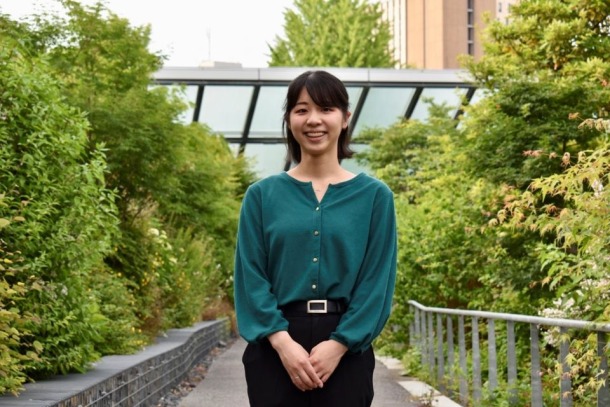
At Toyama Campus Toyama Hill
The Nikkei STOCK League is a financial and economics learning contest for junior high, high school, and university students. Each participating team decides how to allocate 5 million yen to companies and competes with the content of their reports. In the 24th contest held in 2023, a team of students from Professor Masashi Okumura's (Faculty of Commerce) seminar won the Excellence Award in the University/Vocational School Division. The team members are Ayano Oishi, Shuta Suzuki, Teru Taguchi, and Achieved the feat of being the first Waseda University team to top 667 teams was because of the Waseda-like down-to-earth and flexible teamwork that made use of each of the four members' strengths. This time, we asked Ayano Oishi, representing the team, about the process of winning the contest.
--Please tell us how you came to participate in the 24th Nikkei STOCK League.
In the Okumura seminar, which specializes in financial accounting, all third-year students participate in this contest every year as part of their seminar activities. The team members were divided into groups of four in April according to the order of attendance, so this was the start of the competition where everyone met for the first time.
In the Nikkei STOCK League, each participating team submits a report proposing a stock portfolio (※) to achieve a specific investment theme, and the content of the report competes. Investors look at a company's accounting information to decide which stocks to buy, so by participating in this contest, we can study financial accounting from an investor's perspective and deepen our knowledge.
(※) In the Nikkei STOCK League, participants decide how much of their 5 million yen they will invest in each stock.
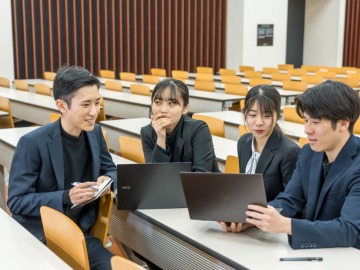
The team members who created the report together. From left: Suzuki, Naito, Oishi, and Taguchi.
--How do you study in the Okumura seminar?
Immediately after joining the seminar, we began preparing a report to be submitted to the Nikkei STOCK League. At the same time, we divided the work into teams and read a book called "Financial Accounting Theory and Practice" (by William R. Scott and Patricia C. O'Brien, published by Chuo Keizai Publishing), interpreting and presenting the book, deepening our knowledge as a whole seminar. In addition, since studying only theory will only result in armchair theory, we will verify how these theories can be applied to society through the Nikkei STOCK League.
When I have trouble writing a report, Professor Okumura gives me advice, but Professor Okumura basically respects the autonomy of students like us, so I think that this has helped me develop the ability to think for myself. In the fourth year, students write their own Bachelor's Thesis based on what they learned in the third year.
--Please tell us about the content of your award-winning report.
We set our own investment themes. The title of our report was "Food Loss!", and we created it under the assumption that companies that tackle food waste, a social issue, will see their stock prices rise. We started by analyzing the current situation in Japan to see what efforts are being made to address the food waste issue. We then narrowed down, or screened, the approximately 4,000 listed companies. In the first stage of screening, we extracted companies that are promoting food waste reduction, in the second stage, we looked at the company's websites to find out what activities they are taking against food waste, and in the third stage, we scored them based on factors such as how much return on investment they would have, and ultimately narrowed it down to 20 companies.
In parallel with the screening, we also requested interviews with 35 companies that were narrowed down in the second stage of screening in order to investigate what measures companies that are promoting food waste are actually taking. We were able to conduct interviews with eight companies that readily agreed, and we were also able to receive cooperation from the Ministry of the Environment, the Ministry of Agriculture, Forestry and Fisheries, and the Consumer Affairs Agency, which are ministries and agencies involved in reducing food waste.
Then, based on the efforts to reduce food waste made by companies and government ministries that we learned from interviews, we decided to allocate the investment amount to the 20 companies that we narrowed down through all the screening. It is common to allocate more to companies with stable performance to reduce risk, but this results in the investment amount being biased toward large companies, and less being allocated to venture companies that are also actively working to reduce food waste. Therefore, we solved this problem by allocating 2.5 million yen of the 5 million yen equally to all companies, and allocating the remaining 2.5 million yen to each company according to their performance. In this way, by thinking flexibly rather than allocating based on a simple ratio, I think we were able to differentiate ourselves from other teams.
Image on the left: A diagram created by Oishi's team on the relationship between food waste prevention measures and corporate value, for which no academic causal relationship is known.
Image on the right: A comparison of the performance of the portfolio (investment performance and track record) built by Oishi' team with the performance of the Nikkei Stock Average (Nikkei 225). It shows that the portfolio is performing better than the Nikkei 225.
--What do you think was appreciated about your work and led to it being awarded the prize?
The judges from the organizers, Nihon Keizai Shimbun Inc. and sponsor Nomura Holdings, commented that "the amount of interviews we did was down-to-earth and typical of Waseda." While many universities place emphasis on theory, we interviewed many companies and government agencies before creating our report, so the amount of action we took to get information ourselves was apparently accepted as a Waseda-like "down-to-earth" approach.

A Zoom interview with a company. Mr. Oishi is on the right.
In addition to the number of interviews, we were also evaluated for the thoroughness of our research and analysis, the design of the report, and the readability of the text, and each member's strengths were apparent there. For example, Suzuki, the leader, was in charge of data analysis, Taguchi, who is good at writing, was in charge of writing, and Naito, who is good at design, was in charge of report design. I used to work in the public relations department of the Waseda Festival management staff, so I was good at dealing with the outside world, and I was mainly in charge of making appointments with companies and conducting interviews. Each of us has a different area of expertise, and I feel that we were able to win the award because the four of us worked well together in that area.
Did you have any difficulties writing the report?
It took a long time to decide on an investment theme, what theme to focus on within the broad framework of stock investment. After searching for a cool theme that the four of us wanted to work on and brainstorming many times, we decided on food waste as our theme because it is a topic that is very close to us, and there has been a big movement to address this issue in Japan since the "Act on Promotion of Food Loss and Waste Reduction" was enacted in 2019. It is not a new theme, but instead it made us more motivated to make the report more substantial and take on the challenge.
Each member was in charge of their own student club, studying for qualifications or job hunting, and I was studying to go to graduate school, so the period leading up to the report was extremely busy. Therefore, we created Excel spreadsheets for each other to manage our tasks and visualize our progress, so that we could proceed with the report writing smoothly.
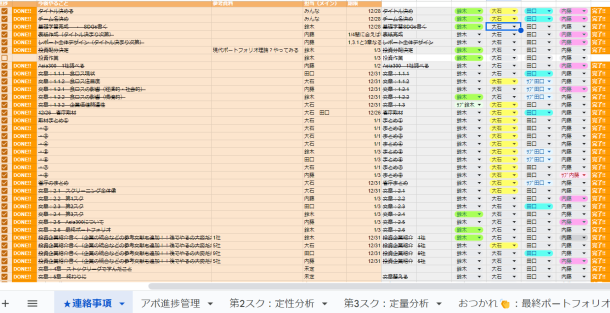
An Excel spreadsheet created by Oishi that allows team members to manage tasks
Because each and every person worked so seriously, there were misunderstandings within the team due to differences in direction and enthusiasm, but through repeated discussions we were able to understand each other better and I think we are now able to communicate more closely than before.
Also, although it was really hard to interview many companies, it was a very valuable experience for me because I had never had the opportunity to directly ask working people about their internal company initiatives. I was very happy that the companies who agreed to interview us were interested in us.
--Finally, please tell us about your future prospects and a message for Waseda students.
I am aiming to go on to graduate school using the "Five-Year Undergraduate and Master's Completion System," which allows me to earn an undergraduate and master's degree in five years, so I would like to further explore what I have learned in Okumura's seminar and through writing this report.
We were able to receive the award even though we did not have deep specialized knowledge because we were in an environment at Waseda where we had Professor who were generous with their cooperation and friends who could help us improve. Waseda provides an environment where each individual can realize their potential, so if you make studying one of the things you really want to do, I think you will have a more fulfilling student life!
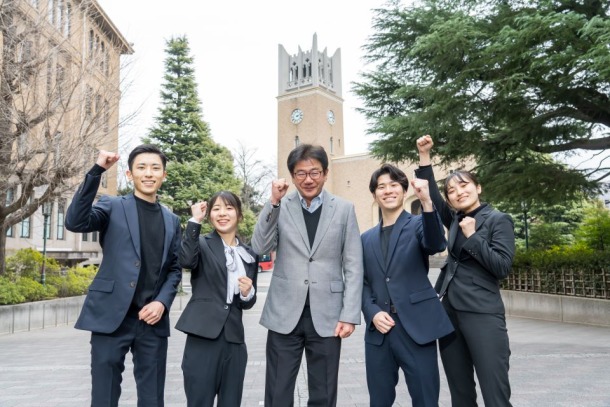
Group photo of Professor Okumura's team of four with Okuma Auditorium in the background
No.875
Interview, text and photography: Waseda Weekly Reporter (SJC student staff)
Watanabe Shino, 3rd year student School of Education
【Profile】
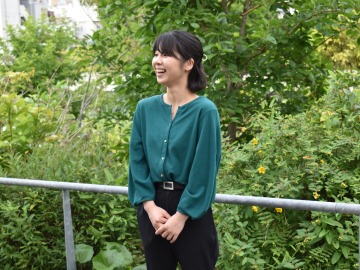
Born in Osaka Prefecture. Graduated from Tokyo Metropolitan Kunitachi High School. Oishi's hobby is walking. Oishi has been walking on Equestrian Ground since Oishi's first year and is exploring new restaurants. Oishi's recommended restaurant is "Café Cotton Club." Oishi is a student staff member at Academic Advising Office.
Okumura Seminar X: @okumura_seminar
Okumura Seminar Instagram: @okumura_seminar

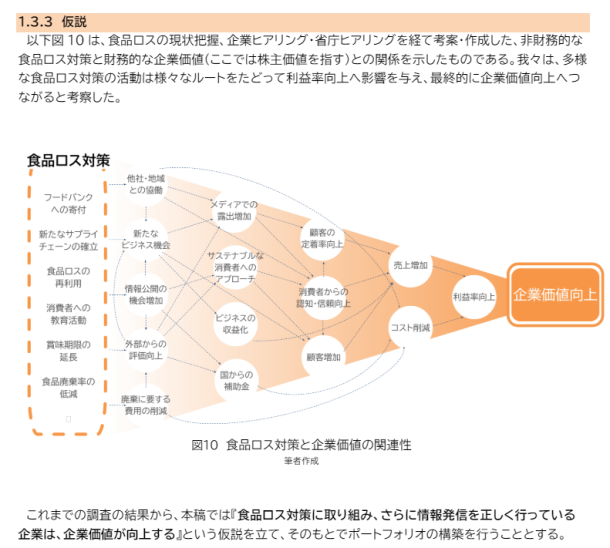
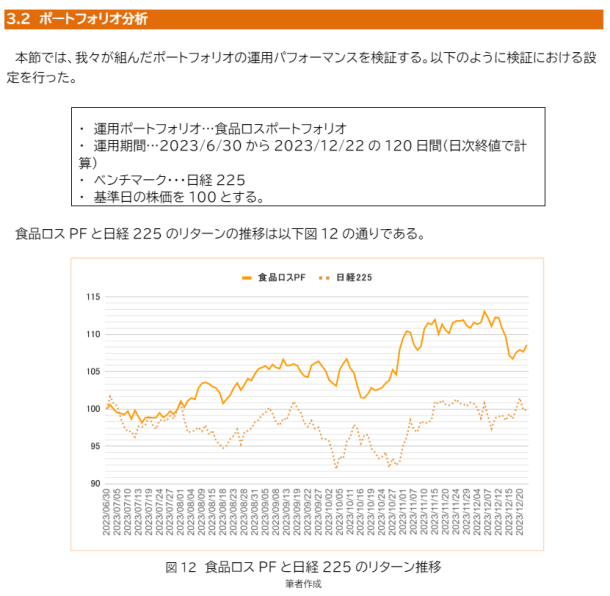
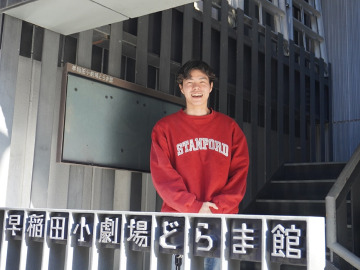
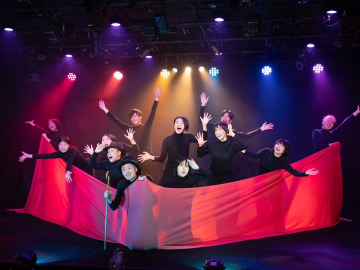
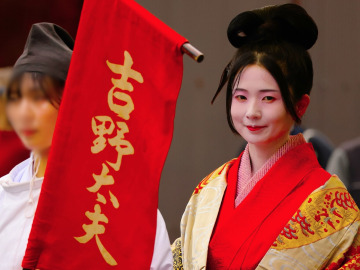
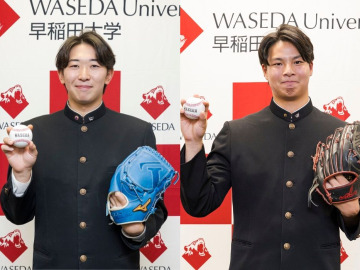

![[Save version] Map of the four main campuses](https://www.waseda.jp/inst/weekly/assets/uploads/2025/09/17cb2975123fc5103172ef60bd98608d-610x458.jpg)

